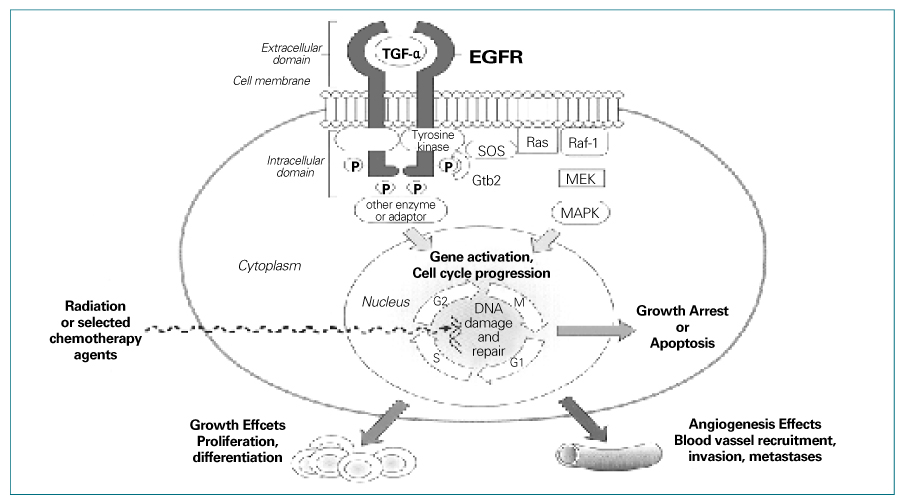J Korean Med Assoc.
2003 Jun;46(6):542-549. 10.5124/jkma.2003.46.6.542.
Molecular Targeted Therapy in Cancer
- Affiliations
-
- 1Department of Internal Medicine, Soon Chun Hyang University of Medicine & Hospital, Korea. parkhs@hosp.sch.ac.kr, drlns@mdhouse.com
- KMID: 2183092
- DOI: http://doi.org/10.5124/jkma.2003.46.6.542
Abstract
- Use of non-selective drugs to kill cancer cells means that healthy cells will inevitably be damaged and many patients will suffer severe side-effects. New therapies are continuously being sought to reduce the mortality from cancer. The targeted cancer therapy has been developed with advances in molecular biology and technology. Over the last several decades, a wealth of knowledge has emerged regarding the molecular events involved in human cancer. Understanding the molecular events in tumorigenesis and mechanism would provide knowledge in searching for novel targets.Through our understanding of signaling pathways regulating cellular growth, cell cycle, and apoptosis, numerous targets for anticancer agents have emerged. The targets usually include EGFR, transmembrane protein tyrosine kinase, protein kinase C, farnesyl transferase, angiogenesis, and metalloproteinase. It has become clear that targeted therapy is the important novel strategy for treatment of cancer through preclinical clinical trials.
Keyword
MeSH Terms
Figure
Reference
-
1. Herbst RS, Hong WK. Targeted therapy against the epidermal growth factor receptor. Semin Oncol. 2002. 29:1–69.2. Savage DG, Antman KH. Imatinib mesylate-A new oral targeted therapy. N Engl J Med. 2002. 346:683–693.3. Deininger MW, O'Brien SG, Ford JM, Druker BJ. Practical management of patients with chronic myeloid leukemia receiving imatinib. J Clin Oncol. 2003. 21:1637–1647.
Article4. Herbst RS, Maddox AM. Selective oral epidermal growth factor receptor tyrosine kinase inhibitor ZD1839 is generally well-tolerated and has activity in non-small-cell lung cancer and other solid tumors : results of a phase I trial. J Clin Oncol. 2002. 20(18):3815–3825.
Article5. Hidalgo M, Eckhardt SG. Development of martix metalloprotease inhibitors in cancer therapy. J Natl Cancer Inst. 2001. 93:178–193.
- Full Text Links
- Actions
-
Cited
- CITED
-
- Close
- Share
- Similar articles
-
- New Targeted Therapy for Non-Small Cell Lung Cancer
- Systemic Therapy for Advanced Hepatocellular Carcinoma: Targeted Therapy and Immunotherapy
- Molecular targeted therapy of thyroid cancer
- New Strategies for Combined Radioiodine Therapy in Refractory Thyroid Cancer
- Molecular Targeted Therapy for Lung Cancer




